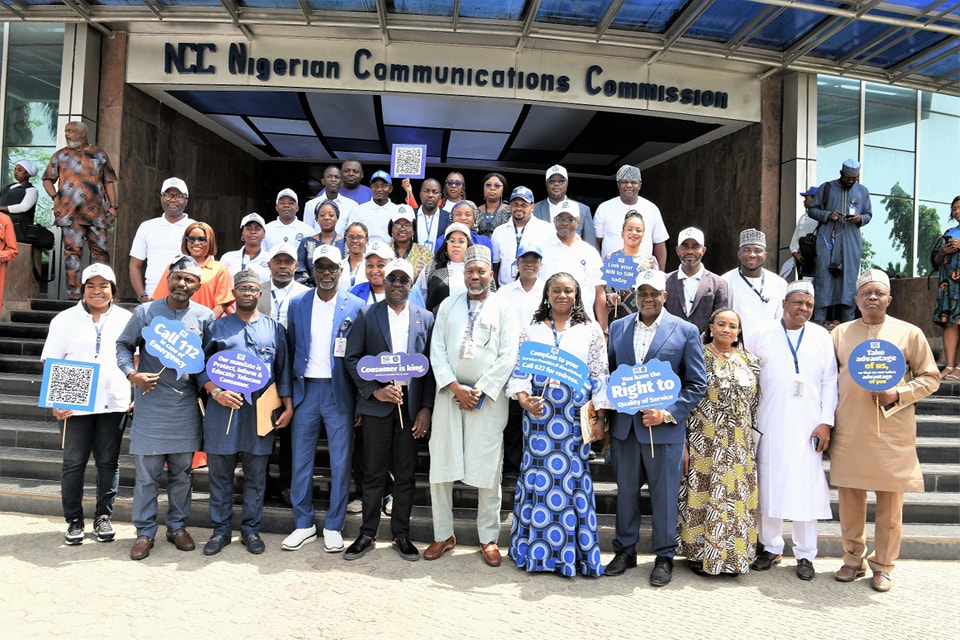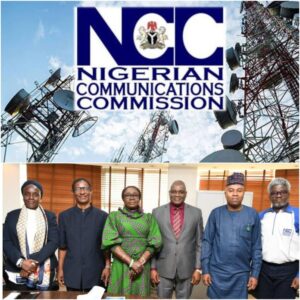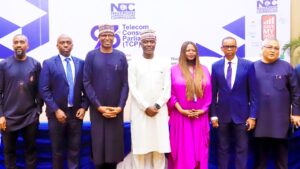

As the world marked the 2024 World Consumer Rights Day on 15 Friday, the Nigerian Communications Commission (NCC) has again reiterated the commitment of the regulatory agency to protect and safeguard the interests of the telecommunications consumers in the country.
Speaking at a gathering to celebrate the World Consumer Rights Day in Abuja on Friday, Executive Vice Chairman/CEO of the NCC, Dr. Aminu Maida said that the Commission has over the years kept faith with this date to highlight the important position the telecom consumers occupy in the telecommunications ecosystem in Nigeria.
Maida said that the Commission has also kept faith to uphold the rights of consumers which have evolved over the years with additional new consumer rights like the right to privacy, the right to quality of service, the right to timely redress, the right to action on disputed charges, right to fair complaint process and right to accurate billing.
“While the theme of this year’s World Consumer Right Day is on Fair and Responsible AI for the Consumer, I cannot but speak to important thematic issues in the Nigerian Telecom Space.
“With the Commission’s special interest and commitment to Consumer Protection, we have proactively put in place consumer-centric initiatives to deal with first-level complaints by the telecom consumer.
“These initiatives include the Consumer Complaints Management (CCM), through which various channels of lodging complaints were created, the NCC Toll-free line 622 available between 8:00 am to 8:00 pm daily except on Sundays and Public Holidays, the Do-Not-Disturb (DND) Code 2442, for stopping unsolicited messages, the Consumer Portal-http://consumer.ncc.gov.ng, and the Commission Consumer X account @Consumersncc.
“Other initiatives include the Telecom Consumer Assistance, Resolution and Enquiries (TELCARE), at Nnamdi Azikiwe International Airport, Abuja, an additional platform to enhance awareness of the Commission’s activities, make enquiries on consumer complaints and also for advocacy on any thematic telecom issues or concern. Also not to overlook the most recent, the Harmonized Short Codes initiative which enables consumers to use the same codes to access services across all networks,” Dr. Maida said.
According to him, the NCC has resolved that the theme of this year’s Day will be considered in its policy formulation and plans of action.
He noted that one major focus area of the strategic roadmap of the Nigerian Communications Commission’s current Management is the Consumer.

“The Commission is affirming that the theme of this year will be an integral part of its activities considering that AI is a force that is shaping our future in profound ways. It holds incredible potential to improve our lives, but it also challenges us to think critically about how we harness this power responsibly.
“Our continuous resolve to Protect, Inform and Educate (PIE Mandate) the telecom consumer is unwavering, particularly as AI technologies continue to advance, there is a need to foster innovation while safeguarding fundamental rights, values, and dignity of consumers,” he said.
Maida, however, insisted that while the world should recognise and embrace what Artificial Intelligence (AI) is bringing to the table, there is also the need for the telecom operators and regulatory bodies to be mindful of how well the consumers will be protected.
“The rapid advancement of artificial intelligence (AI) is reshaping industries and transforming the way we live and work. However, as AI technologies become increasingly integrated into various aspects of society, so they bring forth a complex web of legal and regulatory challenges.
“Navigating this uncharted territory requires a careful examination of existing laws, the development of new regulations, and ethical considerations to ensure that AI benefits society without compromising fundamental rights and values.
“AI Developers need to be transparent about the data, algorithms, and models used in AI systems. This ensures that decisions made by AI can be explained and mistakes can be fixed to ensure everyone is treated fairly, regardless of their background. This helps prevent biased decisions or discrimination thereby promoting inclusivity and equality.
“Protecting citizens’ privacy is extremely important when using AI. Organizations should handle personal data responsibly, following strict privacy regulations. Respecting privacy builds trust in AI systems.
“Responsible AI requires mechanisms for holding systems accountable and explaining their decisions. Consumers should understand how AI systems work and have a way to address issues or biases,” he said.




